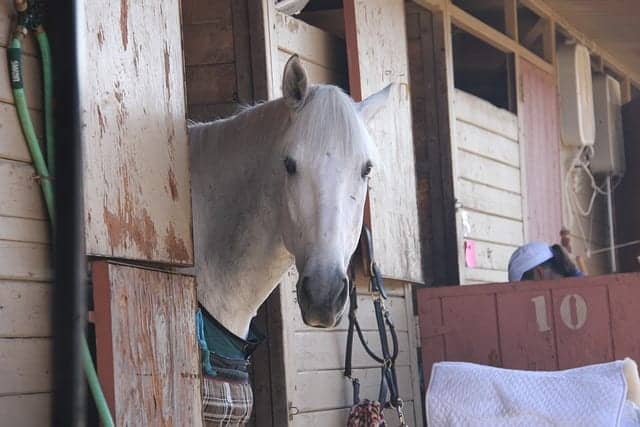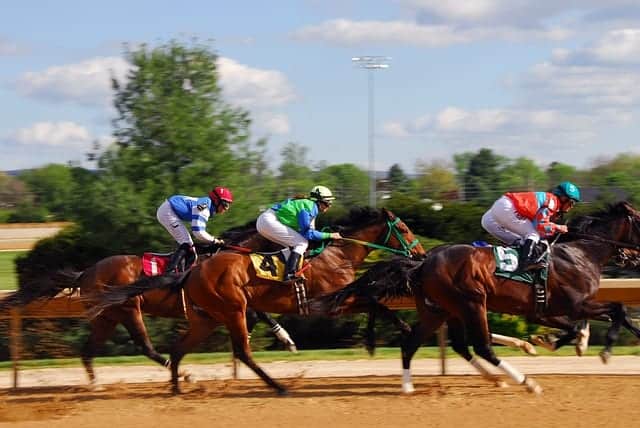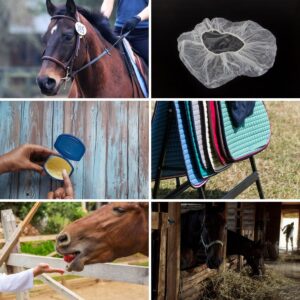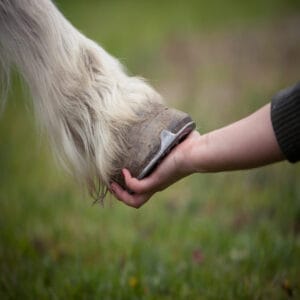Horse racing has always been a controversial topic, but the recent spate of horse deaths at a famed California horse track (Santa Anita) has brought the issue into the limelight. Horses are being euthanized on the track after suffering horrific injuries. A broken leg is a death sentence, and according to a racing organization called the Jockey Club, an average of 10 horses a week lost their lives due to racing injuries last year. Typically, finding information on those deaths is as simple as making a phone call or submitting a public records request. Even in Santa Anita, where regular deaths temporarily shut down the track, the grisly information is public knowledge. That isn't true, however, for Kentucky. Unlike most racetracks in the country, the storied Churchill Downs is keeping secrets.
This confidentiality is apparently not new, but recent news coverage (or lack thereof) has brought it to the public's attention. It started when a 3-year-old filly named Kinley Karole died on the track at Churchill Downs two weeks after the Kentucky Derby. It was the Thoroughbred's first race of her career. She was slow out of the gate and trailed behind the pack for the first minute of the race. Eventually, however, she started to catch up. Her prospects were improving, but just as she got close to the pack, her back leg snapped. She fell, the vet was called, and Kinley Karole didn't live to finish her first race.
Most people assume a tragic incident like what happened to this young horse would be headline news—especially since it happened at Churchill Downs so soon after the most prolific race of the season. But there were no news reports, no social media posts, and no coverage at all.
If Kinley Karole had died at almost any other track in the country, her death would now be public knowledge. You'd be able to look it up and see all relatable information including her age, breed, injury, trainer, owner, date of death, and where it happened. But at Churchill Downs, the Kentucky Horse Racing Commission keeps that information a secret. They say state law allows them their secrets because it protects the business interests of horse trainers and owners. Their reasoning is that if horse death information was made public, trainers and owners would be at a disadvantage.
This standpoint, however, doesn't seem to be shared by racing officials in other states. KyCIR reporter Caitlin McGlade did some digging and talked to trainers, owners, and officials at other racetracks. Tracks in Maryland, California, New York, Illinois, and Arkansas all make horse deaths part of public record. Even in Kentucky, Keeneland and Turfway Park share their statistics, but the most famous track of all, Churchill Downs, does not.
When pressed, Churchill Downs officials did agree to release death reports of individual horses, but there was a major caveat. Several pieces of key information, including the horse's name, age, sex, time and date of death, race number, owner's name, and track name, were redacted.
By withholding information about horse deaths, Churchill Downs deprives the public of important information. Even Kinley Karole's trainer, Larry Demeritte, doesn't understand the logic behind keeping secrets. In his opinion, being transparent could help the industry regain the public's trust. He told KyCIR,
"I would like to see that people trust us more in the game. The more secretive you are, people always say, there's something shady about it."
As the controversy surrounding the horse racing industry escalates, it's likely that the Kentucky Horse Racing Commission will face continued pressure. The future of the sport isn't clear, and it could be headed toward major changes.
Horse Courses by Elaine Heney
- Listening to the Horse - The Documentary by Elaine Heney & Grey Pony Films
- Shoulder In & Out Training for better balance, bend & topline development with your horse
- Over 110+ Polework Exercises & Challenges to Download
- Dancing at Liberty & Creating Connection with Your Horse (11 lessons) - Grey Pony Films








Leave a Reply